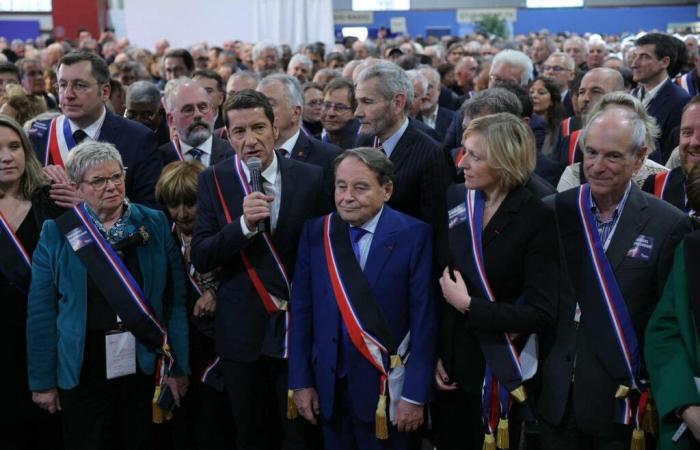With some 3,000 deal points, 240,000 people making a living from it and a turnover estimated between 3.5 and 6 billion euros, the drug would be a big business if it didn't kill people, including teenagers aged 14. years, and did not ruin the health of its consumers. To the point that for the first time, the Congress of Mayors of France took up the issue this week.
“I sounded the alarm three years ago by going to rural departments that I had known well when I was young, where I clearly saw deal points in the town centers, areas sometimes of production, and distribution relays,” testified David Lisnard, president of the Association of Mayors of France.
Laundering establishments
Mayor LR of Cannes also tells how his city has been transformed under the effect of drug trafficking, with the proliferation of money laundering establishments: firstly “kebab shops which never have a customer but report large figures of business, then pizzerias and now barbers.”
Same cause, same effects in Morlaix, a town of 15,000 inhabitants in Finistère faced for several years with a “very sharp increase in the volume of drug trafficking”, according to its mayor Jean-Paul Vermot (PS), with its share of violent crimes like the stabbing murder of an 18-year-old young man in 2021 in the neighboring seaside resort of Carantec.
“We see much more increased violence in the street, particularly with the consumption of cocaine and substances like MDMA or crack,” continues the elected official, whereas before “we had to face falling asleep with hashish.” “. The situation is also worrying in overseas municipalities.
“French DEA”
José Mirande, mayor of Marin (Martinique), describes the “huge increase in crime. There were 23 murders last year, 24 this year already, with a social situation, 25% unemployed, which amplifies the mule phenomenon.” According to the national gendarmerie, 75% of cocaine seizures in 2024 were made either in the Antilles Guyana or on the national territory coming from the Antilles Guyana.
The director general of the national police announced Wednesday that nearly 45 tons of cocaine have already been seized by the French services in 2024, double the seizures in 2023. “In the gendarmerie zone, it is still easier to find a dealer than finding a doctor,” admitted gendarmerie colonel François Devigny.
The estimate of sales, up to 6 billion euros, is not very far “from the budget of the Ministry of Justice, which is 7.5 billion”, underlines Senator Étienne Blanc (LR, Rhône), author of a bill aiming to recalibrate the Anti-Narcotics Office (Ofast) into a true “French-style DEA”, named after the American drug control agency, and to create a national anti-narcotics prosecution (Pnast).
Home delivery
According to senator (PS, Saône-et-Loire) Jérôme Durain “there is a territorial extension of the problem, it is the France of the sub-prefectures, the France of the villages and no longer just the large metropolises which are affected”. “We are not yet in a narco-state, a ‘Mexicanization’, but there is a slippery slope,” he laments. The result is settling of scores, murders, arms trafficking, etc.
“Small towns are not immune […] with new forms of sales, uberization […]30 to 40% of consumers have their cocaine delivered to their homes,” recalled François Devigny. Faced with this, the capture of criminal assets only represents an epsilonesque percentage.






